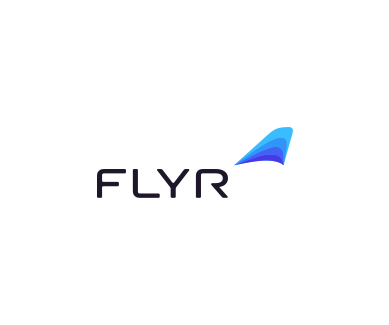Fresh off a 19-hour flight from JFK, Alex Mans, founder and CEO of FLYR, took the stage at AFA Singapore last month for a fireside session with The Airline Observer’s Brian Sumers, and detailed the company’s vision for propelling airline technology into the future and solving the “mission critical” challenges holding the industry back.
He laid out key issues in the aviation industry – outdated technology, a lack of personalized services, and a small handful of power players that are causing it to lag behind other key sectors in tech implementation.
Alex identified a few trends that travel and transportation leaders should keep in mind as the industry pushes forward.
Supercharging with Artificial Intelligence
Airlines produce massive amounts of data, which gives the industry immense potential for AI-driven transformation. The raw material is there – airlines just need the tools to properly leverage it. As Mans told Sumers, that’s where FLYR comes in.
“The airline’s core systems of record haven’t yet evolved to a modern database, effectively holding back what we can actually use them for,” Mans explained.
“We help airlines collect and manage all this data in a structured manner,” said Mans. “We help them forecast outcomes to make better decisions, and we help them optimize decisions such as pricing or what you should be selling.”
He pointed to the company’s long standing relationship with Air New Zealand, which developed a new revenue management system using deep learning to dynamically manage pricing across its entire network, in addition to a new last-mile pricing mechanic that can handle billions of daily requests.
Upgrading to Modern Infrastructure
A core focus for FLYR is upgrading airlines’ antiquated data infrastructure without tearing it down completely. By building a middleware translation layer, FLYR allows airlines to maintain legacy backend connectivity while modernizing customer-facing channels.
Mans detailed FLYR’s work with Avianca, which had been using an industry-standard web mobile kiosk for customer flight changes. He explained that this technology “hasn’t really changed for over ten years,” and that “the main reason for that is the disconnect with the downstream reservation systems and what they are able to do.”
To solve the problem, FLYR implemented a new booking engine layer on top of Avianca’s existing reservations system. This allowed Avianca to freely develop a digital retail presence, allowing it to power more intuitive web and mobile experiences ability. It “unlocked their ability to develop the experience for the customer from the limitations of the back office,” according to Mans.
The Future Is Highly Personalized
Looking ahead, Mans sees airlines transforming into sophisticated merchandisers that can hyper-personalize their product offerings for each customer, breaking free from the one-size-fits-all constraints of legacy systems.
“We’re going to start seeing airlines operate much more like Expedia and less like your neighboring airline,” he predicted. “We’re going to see airlines harness the power of their loyalty programs…and we’re going to see massive changes in how content is distributed.”
Airlines will use AI, behavioral data, and modern retailing capabilities to automatically surface the right products, services, and experiences to each individual traveler, making the flight experience richer than ever before. Some airlines, like Condor, are already taking advantage of FLYR to create multi-modal travel experiences, allowing customers to book air-and-rail itineraries in one go and offering ancillary products tailored to their personal preferences.
Change from within
With global travel ramping back up after the industry’s biggest crisis in decades, there’s no better time to solve the technological stagnation plaguing airlines. Mans told Sumers that he’s energized by the challenge of pushing an entrenched industry forward – partially due to his personal passion for aviation.
“The experience of flight…it’s magic,” said Mans. “As long as I can keep experiencing that, I’m going to keep drawing energy from it.”
Watch the full talk below, and learn more about FLYR’s mission to push the aviation, hospitality and cargo industries forward at flyr.com.
The post AFA Singapore Recap: How to Overcome the Oligopoly and Unlock Innovation for the Airline Industry appeared first on FLYR.




